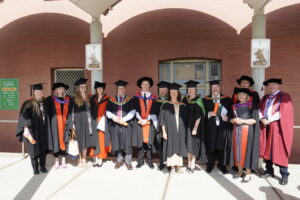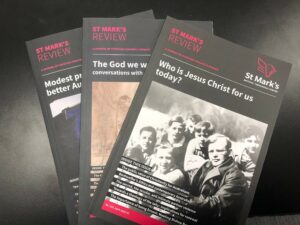by Rev’d Dr Geoff Broughton
Professional/pastoral supervision is the brave, safe space where clergy (and ministry workers) reflect on their ministry practice in a regular, planned supervision session.
I am writing this article straight after a session with one of my regular supervisees which provides an immediate example of what supervision looks like. My supervisee is an ordained Anglican, ministering on the east coast of Australia, and was called to the scene of a traumatic incident. My supervisee nominated this issue, setting aside two other pressing matters, as the focus for the session. Sensing the incident may involve many and complex details––some of which would be highly confidential––I prevented my supervisee from merely recounting what had happened with the following question. If this incident were to be written as a case study for students training at a college, what title would you give it? A long pause followed. The supervisee first offered a pithy title for what had transpired. We agreed it was an accurate title for the incident but wondered if there was a more creative title for what students could discover by reflecting on my supervisee’s reflection on what had happened? The supervisee’s second response provided a focussed centre of gravity for our time together and the rest of the supervision session flowed from this clear focus (even though we were only a few minutes into our session). The supervisee began exploring the incident with a succinct phrase, “doing what I can, where I can …”
My own practice of pastoral supervision is indebted to Scottish scholar-priest Michael Paterson who has been the main pioneer in the United Kingdom. Paterson lays out clearly how he sees pastoral supervision differing from supervision as it is used in other professions. Paterson highlights the focus as being on vision and the vocation to which God has called the supervisee. He does not set out to reinvent supervision but instead to look at how the practices of supervision can be used to serve the aim of attending to the Christian call in the supervisee’s life. One of the great strengths of Paterson’s pioneering work is the broad range of different approaches to supervision, abundantly clear that supervision is not simply about thinking. Good supervision, in the tradition of wise oversight, pays attention to what is not said as much as what is said, and understands the place of the story being told in supervision within the framework of the Christian story. The national Anglican Church is responding to recommendations in the final report of the Royal Commission into Institutional Responses to Child Sexual Abuse, so that clergy and ministry workers understand supervision is not because because they have been naughty, weak or stupid.
Towards the end of the supervision session in this article, my supervisee found himself saying the following words about his work, “it was profoundly spiritual”. My supervisee now realised his ministry — doing what he could, where he could — gave the people impacted “words they could borrow” (a reference to a Psalm read and set prayers offered). I wondered if this was the holy ground of his vocation but my supervisee countered with an even better suggestion: “it’s my sweet spot”.
Three functions of pastoral supervision can now be identified from this session: supervision is relational; supervision is about reflecting, not reporting; and, supervision cultivates rightness. The relational function is theologically understood to encompass all relationships (with God, self, and others). The reflecting function is theological reflection that is centred on the wisdom of the cross. Thirdly – and crucially – rightness is both relational and cruciform. For professional/pastoral supervision, that’s the sweetest spot of all.
See further:
- Geoff Broughton, “Pastoral Supervision for Safe Churches” in Journal of Anglican Studies (13 September 2021). https://www.doi.org/10.1017/S174035532100022X.
- Geoff Broughton, A Practical Christology for Pastoral Supervision. Routledge, 2021.
- Jane Leach and Michael Paterson, Pastoral Supervision: A Handbook. SCM Press, 2015.











